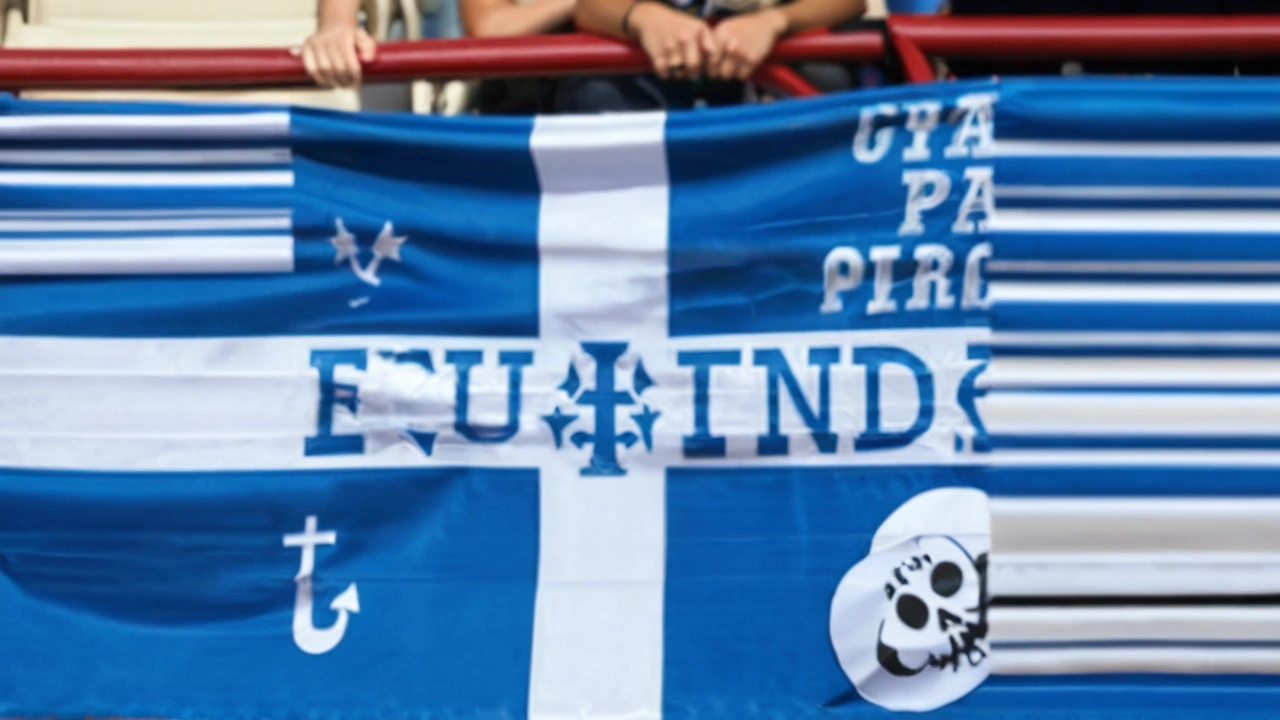Rangers Probe Disturbing Nazi SS Flag Incident at Tynecastle
3 Aug, 2024Flag Display Causes Outrage
In a deeply disturbing incident that has shaken football fans and the broader community, a flag adorned with a Nazi SS symbol was prominently displayed during a recent match between Rangers and Heart of Midlothian at Tynecastle Park. The incident, which occurred during a match that ended in a 3-1 defeat for Rangers, has led to widespread condemnation and an urgent investigation by Rangers Football Club.
The flag in question was a blue banner with white writing, featuring a prominent Nazi SS symbol known as the Totenkopf, or Death's Head. The symbol is historically associated with SS soldiers who guarded concentration camps during World War II and have since been adopted by modern neo-Nazis and white supremacists. The flag also included the phrase, 'Rangers Active Unit. 936. The Firm,' adding an extra layer of offensiveness for many who witnessed it.
Social Media Reacts
The appearance of the flag at Tynecastle Park caught the attention of hundreds of supporters and social media users who reacted in horror and disgust. Images of the flag swiftly made their rounds on various social media platforms, with numerous users demanding that the perpetrators be identified and banned from attending future matches. The reaction was swift and powerful, revealing the deep-seated anger and hurt that such symbols can cause.
'This is utterly disgraceful,' commented one user. 'There's no place for hate symbols in football or anywhere else in society.' Similar sentiments flooded social media, emphasizing the broader community’s zero-tolerance policy toward hate symbols.

Rangers' Response
Rangers wasted no time in addressing the issue, calling the display of the flag 'absolutely unacceptable.' A spokesperson from the club declared, 'We have launched an immediate investigation to identify the individuals responsible for this reprehensible act. This sort of behavior has no place at our club or anywhere in football.'
The incident was particularly jarring given that the match coincided with the club’s celebration of Armed Forces Day, a day meant to honor the British Army and reflect on the values of service and sacrifice. The stark contrast between the day’s purpose and the hateful symbol on display only heightened the collective sense of outrage.
Investigation and Potential Consequences
Rangers have pledged to conduct a thorough investigation to determine who brought and displayed the offensive flag. The club has stated unequivocally that those responsible will face serious consequences, including lifetime bans from attending matches. The investigation is set to include a review of matchday footage, interviews with stewards, and coordination with law enforcement.
'We are committed to rooting out this kind of extremism from our ranks,' the spokesperson added. 'We will work closely with police and other authorities to ensure that those responsible are identified and appropriately punished.'

Broader Implications
This shocking episode has fuelled a broader discussion about the presence of extremist symbols and individuals in football stadiums. Many fans and analysts argue that stricter measures and extensive pre-emptive efforts are required to prevent such incidents from occurring in the future. Some propose enhanced security measures, including rigorous bag checks and increased surveillance.
Football governing bodies are also expected to take a stronger stance. This includes potentially revising guidelines and enforcing more stringent penalties for clubs whose fans are found displaying hateful symbols. The hope is that a collective effort will deter such behaviors and send a clear message that bigotry has no place in football.
For now, the focus remains on identifying those responsible for the flag incident and ensuring that similar episodes do not recur. Rangers, along with Hearts and other clubs, are finding themselves at the forefront of this critical issue, with the onus on them to uphold the sport’s integrity and communal values.
Conclusion
The appearance of a flag bearing a Nazi SS symbol during a Rangers match at Tynecastle Park has led to widespread condemnation and an urgent investigation by the club. Social media users have expressed outrage and the club has pledged to identify and punish those responsible. This incident highlights the urgent need for football clubs and authorities to address the presence of hate symbols in stadiums and take robust measures to prevent such occurrences in the future.

 by
by